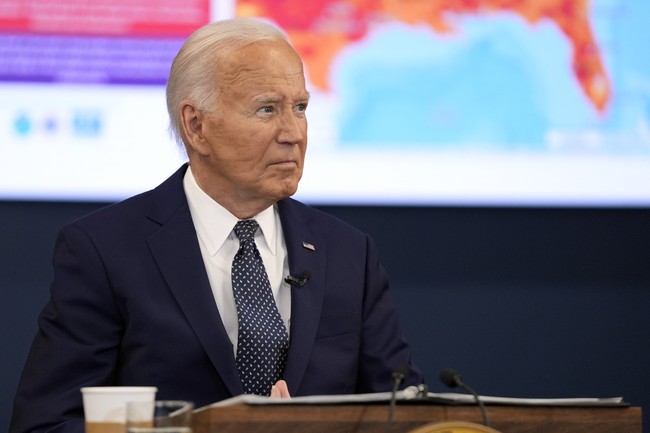First Female President of Mexico Faces Historic Challenges
Claudia Sheinbaum's inauguration as Mexico's first female president brings hope and challenges as she vows continuity amidst mounting social and economic crises.
Published October 03, 2024 - 00:10am

Image recovered from washingtontimes.com
MEXICO CITY -- Claudia Sheinbaum was sworn in on Tuesday as Mexico's first female president, ushering in a new era of leadership while inheriting a raft of urgent national issues. The historic inauguration saw a jubilant Congress chant 'Presidenta! Presidenta!' for the first time in over 200 years of the nation's history.
At 62, Sheinbaum, a scientist-turned-politician, assumes office with a pledge to continue the legacy of her predecessor, Andrés Manuel López Obrador (AMLO). With nearly 60% of the vote in her favor during the June election, her victory is largely attributed to AMLO's sustained popularity.
Despite her political alignment with López Obrador, Sheinbaum's demeanor and approach could not be more different. Described as a cautious scientist and ideological university leftist, her effectiveness will be closely scrutinized, especially without AMLO's charismatic appeal to gloss over potential missteps.
Sheinbaum's presidency is already marked by substantial social and economic challenges. Violence, driven predominantly by powerful drug cartels, remains a persistent issue. The new president's first visit as the head of state is the flood-battered Acapulco, fresh off the destruction caused by Hurricane John.
Drug-related violence is not confined to Acapulco. The northern city of Culiacan has seen fierce battles break out following the capture of high-profile drug lords. Sheinbaum's predecessor often took a hands-off approach to cartel confrontations, leaving local authorities and the military struggling to maintain order.
Moreover, Claudia Sheinbaum has extended an olive branch by publicly apologizing for the 1968 student massacre at Tlatelolco, a dark chapter in Mexico's history involving a deadly crackdown on student protesters by the military. During her first press conference, she termed the atrocities as a crime against humanity and promised that state forces would never again be used to oppress Mexico's populace.
This commitment accompanies her strategic continuity of López Obrador's policies aimed at combating the root causes of violence, such as investing in youth education programs to deter involvement in organized crime. Her security plan, set to be unveiled soon, is expected to build on this approach by fortifying the National Guard.
Sheinbaum stands to inherit a precarious economic situation. Sluggish growth, unfinished infrastructure projects, and significant public debt compound the difficulty of continuing AMLO's ambitious social programs. Financial markets have reacted warily to these economic pressures, and the looming possibility of a Donald Trump victory in the upcoming U.S. presidential election adds to the uncertainty.
Internationally, Sheinbaum faces a complex landscape. While Jill Biden expressed optimism for U.S.-Mexico relations under Sheinbaum's leadership, her advocacies related to national security reforms have sparked concerns. A controversial judicial reform allowing the public to elect judges from 2025 has drawn international scrutiny, particularly from the United States over the security of private investments.
Sheinbaum's future engagements include assessing the damage caused by Hurricane John, which exacerbates the already grim situation in Acapulco, previously devastated by Hurricane Otis in 2023. Climatic catastrophes like these underscore the urgency of her need to address climate change, leveraging her Ph.D. in energy engineering.
Hopes are high that Sheinbaum's leadership will continue to inspire, especially given her history as the daughter of a 1968 movement professor. Yet, Jennifer Piscopo, a gender and politics professor, warns against unrealistic expectations, stressing that being a groundbreaking female leader alone doesn't guarantee miraculous problem-solving capabilities.
As Sheinbaum's tenure begins, Mexicans and the international community watch closely, hoping that the promises of transformation and resilience will materialize into concrete improvements in security, governance, and bilateral relations.







